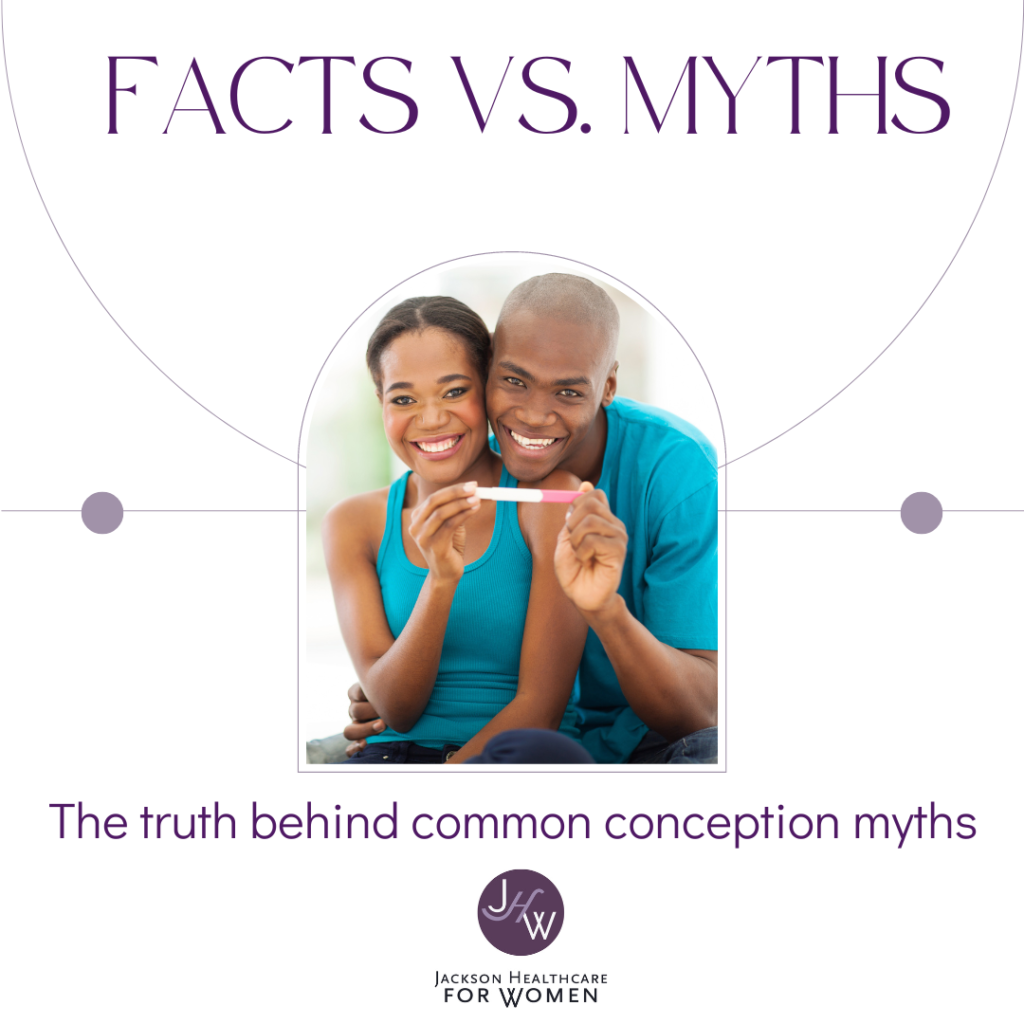Myth: You can control your baby’s sex.
Evidenced-based medical trials have not been able to prove that couples can control whether they have a boy or girl through any sort of special positions, timing, or nutritional plans. In fact, couples that try to follow these methods may have more trouble reproducing because they may avoid having intercourse at the most optimal times for conceiving.
Myth: Having intercourse a certain number of times each month will increase your chances of getting pregnant.
Not necessarily. While the time of day you have intercourse may not matter, it is important to have intercourse when you are ovulating for the best chances of conceiving.
If you want to know when your body is going through its peak fertility period, its typically on days 10-20 of your menstrual cycle. To be sure you can also check for cervical mucus. Many women use an ovulation predictor kit (OPK). These kits test for luteinizing hormone (LH) in urine samples and can provide accurate results within 24 hours after ovulation has occurred.
Myth: Positions during conception matter.
The best position for conceiving a baby is any position you feel comfortable in and can do without pain or discomfort. No need to contort yourself for conception.
Myth: You can’t get pregnant if you have intercourse in the water.
This myth is based on some truth. Sperm are very fragile, so they die quickly when exposed to air and moisture. But they can survive for several hours in water or other liquids such as saliva, which means that if you’re having intercourse near a pool or ocean (or even just splashing around), there’s still a chance you could get pregnant! So, if this is something that interests you, please make sure to use protection!
Conclusion
Conception is a miracle! The truth is that conception takes time — sometimes months or even years of trying — but it can happen when we least expect it (or when we most need it). If you’ve been trying to conceive for more than a year, get in touch with your physician to see if you may need testing to determine ways to improve your chances of conception and if you’d like to read more on this topic, please visit https://www.acog.org/womens-health/pregnancy/getting-pregnant.
Jackson Healthcare for Women is Mississippi’s leading provider of health care services for women. With 15 physicians on staff, Jackson Healthcare for Women is one of the largest and most respected women’s healthcare clinics in the area.

